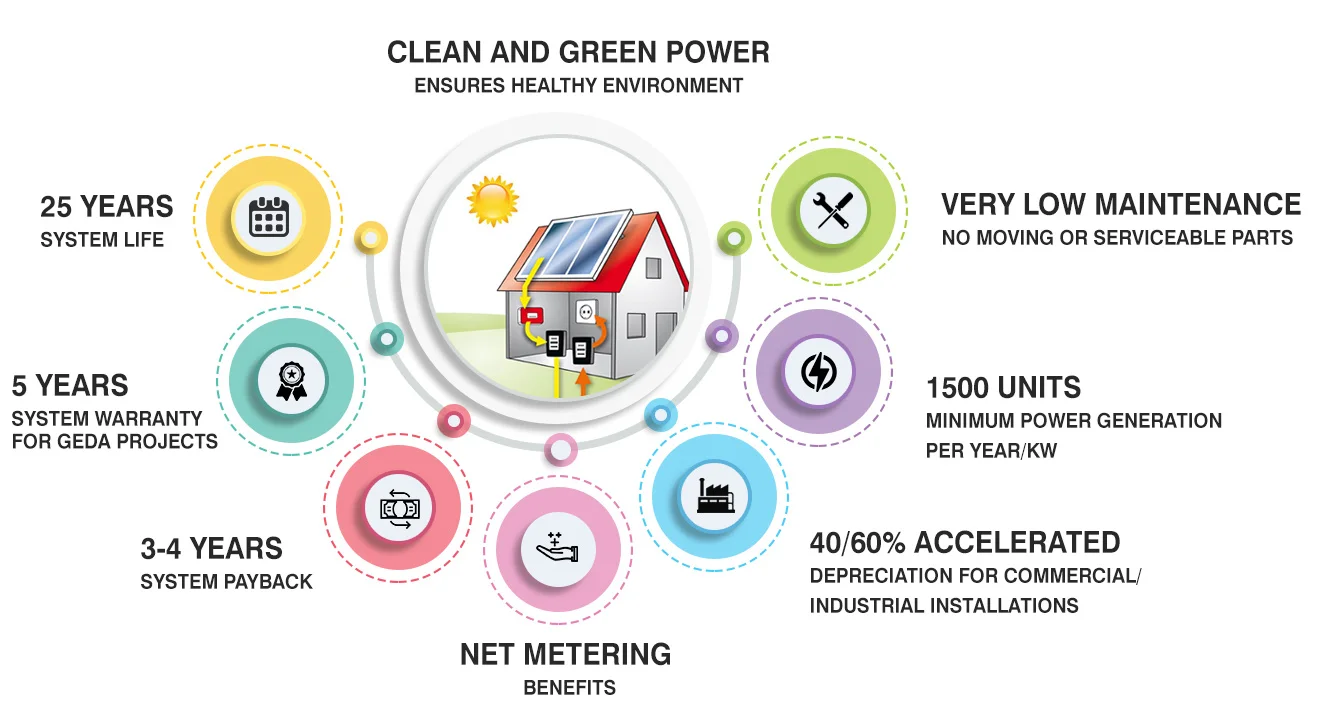
Introduction:
As the world embraces sustainable energy solutions, solar panels have emerged as a frontrunner in the pursuit of renewable power. In this article, we delve into the myriad benefits of solar panels, exploring how they contribute to a more sustainable and environmentally friendly future.
Clean and Renewable Energy Source:
At the heart of solar panel benefits lies their ability to generate clean and renewable energy. Harnessing the power of the sun, solar panels convert sunlight into electricity without emitting harmful pollutants or greenhouse gases. This clean energy source plays a pivotal role in mitigating the impact of traditional fossil fuels on the environment.
Reduced Carbon Footprint:
Solar panels contribute significantly to the reduction of carbon footprints. By generating electricity through photovoltaic cells, solar energy displaces the need for fossil fuels, which are major contributors to carbon dioxide emissions. The adoption of solar power on a global scale can help combat climate change by lowering overall carbon emissions.
Lower Electricity Bills:
One of the immediate and tangible benefits for homeowners is the potential for lower electricity bills. Solar panels allow you to generate your own electricity, reducing dependence on the grid. Excess energy generated during sunny periods can be fed back into the grid, potentially earning credits or payments, further offsetting electricity costs.
Financial Incentives and Rebates:
Governments and local authorities often provide financial incentives and rebates to encourage solar panel adoption. These incentives can include tax credits, rebates on installation costs, and favorable financing options. Taking advantage of these programs not only makes solar panels more accessible but also accelerates the transition to clean energy.
Increased Property Value:
Solar panels can enhance the resale value of properties. Homebuyers increasingly prioritize energy-efficient features, and a solar panel installation adds to the overall appeal of a home. Studies show that homes equipped with solar panels tend to sell faster and at a higher value than those without, providing a return on investment for homeowners.
Energy Independence:
Solar panels contribute to energy independence by decentralizing energy production. Individuals, businesses, and communities can generate their own electricity, reducing reliance on centralized power grids. This independence provides resilience in the face of power outages and disruptions, ensuring a continuous and reliable energy supply.
Job Creation and Economic Growth:
The solar industry has witnessed significant growth, leading to job creation and economic benefits. As demand for solar installations increases, so does the need for skilled professionals in manufacturing, installation, and maintenance. This growth contributes to a more diverse and sustainable economy.
Low Maintenance and Long Lifespan:
Solar panels have a reputation for requiring minimal maintenance. Regular cleaning and occasional checks are usually sufficient to ensure optimal performance. Additionally, solar panels have a long lifespan, typically ranging from 25 to 30 years or more. This durability makes them a reliable and cost-effective investment over the long term.
Technological Advancements and Innovation:
Ongoing technological advancements in solar panel technology continue to enhance efficiency and affordability. Innovations such as improved solar cell designs, energy storage solutions, and smart grid integration contribute to the evolution of solar power. Staying abreast of these innovations allows consumers to benefit from the latest advancements in solar technology.
Environmental Conservation and Biodiversity Protection:
By reducing dependence on fossil fuels, solar panels play a crucial role in environmental conservation. The preservation of natural habitats and ecosystems is closely linked to the reduction of pollution and habitat destruction associated with traditional energy sources. Solar energy contributes to biodiversity protection by minimizing the ecological impact of energy production.
Conclusion:
As we navigate the transition to a sustainable future, the benefits of solar panels shine brightly. From clean energy generation to financial savings and environmental conservation, solar panels offer a multitude of advantages. Embracing solar power not only benefits individuals but also contributes to a collective effort to build a greener and more sustainable world.
For more in-depth insights into Solar Panel Benefits, visit PlayAsSustentable.com.



